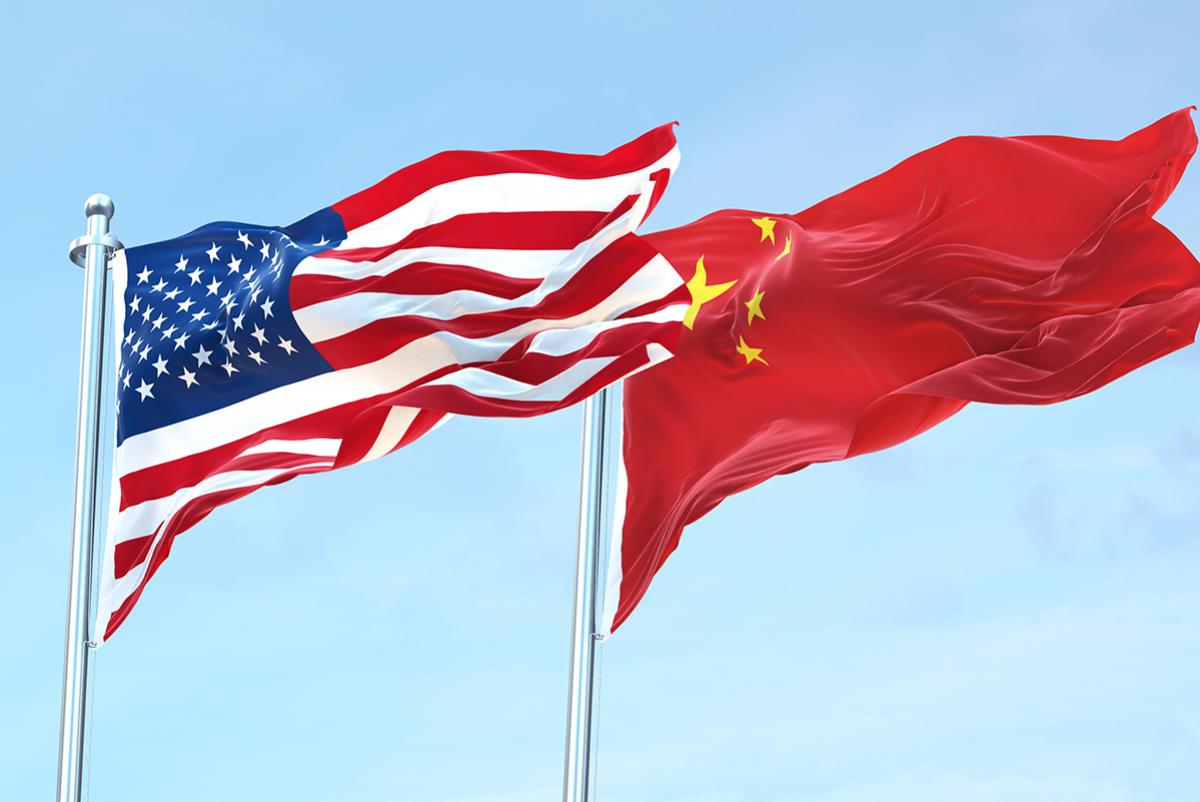Transcript
Emma Atkinson:
You're listening to RadioEd, the University of Denver podcast. I’m your host, Emma Atkinson.
It’s a bear bummer. A mammal misfortune. A panda predicament.
You know what I’m talking about? By the end of this year, all of the giant panda bears loaned to U.S. zoos by the Chinese government will return to China.
The move will leave the U.S. panda-less for the first time since 1972.
And people are pissed! They’re sad to see the sweet, bumbling bears go. Who wouldn’t be? The National Zoo in Washington, D.C. hosted a “panda-palooza” event last month, a goodbye party of sorts for their three pandas.
According to the Smithsonian, the study of giant pandas at the National Zoo has produced invaluable information about panda nutrition, behavior, genetics and more. The care of pandas by zookeepers there has even served as a model for the management of other endangered species.
So why is this happening? Why now? It might be overkill to call the pandas pawns in the chess game that is U.S.-China relations, but it is fair to say that “Panda-gate” is a symptom of the deteriorating relationship between the two world powers.
In this episode, I’ll speak with two experts from the University of Denver—Suisheng Zhao and Collin Meisel—about the Chinese-American relationship and what the future holds for the two countries.
The story of the U.S. and China is a long and complicated one. The People’s Republic of China was established in 1949, and since then, China and the U.S. have gone through periods of both peaceful reciprocity and downright discord.
The University of Denver’s Korbel School of International Studies has long been interested in studying the complexities of U.S.-China relations. SWEE-sun Tsao is a professor in the Korbel school and the executive director of DU’s Center for China-U.S. Cooperation. He’s also the Editor of the Journal for Contemporary China, “the only English language journal edited in North America that provides exclusive information about contemporary Chinese affairs for scholars, businesspeople and government policymakers.”
With an expert right on campus, I talked with Zhao to get a better understanding of what the pandas signify. He says, in recent history, we’ve seen the Chinese-American relationship yo-yo between both ends of the spectrum.
Suisheng Zhao (02:12):
I came to the US almost 40 years ago and have witnessed the dramatic changes in the relationship. In fact, I will say I benefited from that relationship, because for many years, the engagement on the U.S. side and cooperation on the China side really kept the relationship in a very healthy [state] to benefit both China and the U.S.
Emma Atkinson (02:47):
Zhao says he believes the current breakdown in the U.S-China relationship began in the second term of the Obama administration and was only worsened by President Donald Trump’s policies toward China, including a set of tariffs worth at least $50 billion in March 2018. China imposed retaliatory measures, thus setting off a trade war of sorts, with the two countries exchanging tariffs on goods from Chinese clothing and electronics to U.S. agricultural exports.
He says that communications between the two countries broke down during the Trump administration, leading to misperceptions and misjudgment. And now, under Biden, we’re seeing efforts to reopen those channels.
Suisheng Zhao (03:23):
These communications basically started in the summer. This summer, we saw four U.S. Cabinet members visit Beijing since June, starting with Secretary of State Tony Blinken, and then we had Treasury Secretary Yellen, and then we had John Kerry, the Climate Special Envoy, and then we had the Secretary of Commerce. And we now currently have the Senate delegation led by the majority leader, Chuck Schumer, and Chuck Schumer, he just met with Chinese President Xi Jinping and this morning and met with the Chinese foreign minister, and simply had some kind of very candid, and I will say also constructive meetings.
Emma Atkinson (04:24):
But Zhao says despite the two countries talking the diplomatic talk, he has yet to see them walk the walk when it comes to concrete policies.
And the problem with U.S.-China relations, he says, can be attributed to three factors. The first is a fundamental difference in political ideology.
Suisheng Zhao (04:41):
China has become increasingly authoritarian, totalitarian in my lifetime. In fact, I came to the U.S. almost 40 years ago, when China began to open up to reform and gradually tried to integrate into the international economy, and also to open up even the political peripheries of the system. And so I could travel back and very frequently; I met my colleagues in China, talking about how to help them to understand international society and to work with the international community. But I found this has been changed dramatically, reduced dramatically. China has gradually closed up, closed down.
Emma Atkinson (05:29):
The second issue causing friction between the U.S. and China is the unavoidable tension between an incumbent global power—the United States—and a rising power—China. Zhao says since its rise to international dominance following World War II, the U.S. has been reluctant to void any of its global influence to other countries—and that includes China. And China, on the other hand, will do anything in its power to claw its way up the global leadership ladder.
Suisheng Zhao (05:53):
USA will do everything to keep its promising American words, global leadership, and will not allow China to repress it. And China, on the other hand, on the rising side, for many years, China would think that the U.S. would do everything, to suppress China. And so it will do everything to keep America at bay try to do everything to keep its rising momentum. So this can have structural conflict.
Emma Atkinson (06:29):
And the third issue, of course, is the problem of Taiwan, officially known as the Republic of China. Taiwan was transferred from Japan to the Republic of China after World War II, and though it has been governed independently since then, China, known as the People’s Republic of China, views the island as part of its territory.
The idea that Taiwan is part of China is called the “One-China Principle,” and the U.S. recognizes this as its official policy on Taiwan. However, the U.S. has committed to selling arms to Taiwan for self-defense, which could ostensibly be used against China in the event of an invasion. The Council on Foreign Relations calls the United States’ position on Taiwan one of “strategic ambiguity.”
But President Joe Biden has said multiple times that the U.S. would, in fact, come to Taiwan’s defense in the event of an attack by China. Some experts say that the Taiwan issue could be a major factor in—and perhaps the catalyst for—a war between the U.S. and China.
Zhao says this is perhaps the most difficult sticking point between the two countries and agrees that the Taiwan issue is one that could cause them to come to blows.
Suisheng Zhao (07:35):
Well, for China, this is a commitment to war and is clearly giving up of the so-called “strategic ambiguity…” U.S. will defend Taiwan. Then, a nuclear power—China—and a nuclear power—U.S.—could possibly come to a war directly over Taiwan. This is the only issue, in fact, that could potentially bring these two nuclear powers into military conflict, and neither side has any intention to accommodate, to compromise on this issue.
Emma Atkinson (08:23):
Some experts and commentators have called the state of U.S.-China relations the “new Cold War.” Zhao disagrees with this—he says there are too many other countries with significant influence, like Japan and Australia, that haven’t explicitly taken sides in the U.S.-China brouhaha. He says this perception of “Cold War”-like relations comes from people’s misunderstanding of the situation—and from an overreaction.
Suisheng Zhao (08:46):
China is more afraid of American liberal democracy than America is afraid of China. Think about that.
Emma Atkinson (09:03):
So what’s next? We’ve got three issues that the U.S. and China refuse to budge on. How might this affect their relationship moving forward—and what does it mean for the rest of the world?
To find out, I spoke with Collin Meisel, associate director of Geopolitical Analysis at the Pardee Center for International Futures. The Pardee Center, among other things, uses the International Futures model to make forecasts about what will happen among global powers in the coming years.
Collin Meisel (09:29):
So in the work that we do, we have a global focus, right. So when we gather data, often we're gathering data on 180 895 200 plus countries over long time horizons. And so we think that it's important to have just as good of an understanding of Zambia as a country like China. That said, given its presence in sort of diplomatic relations worldwide, economically security, security related interactions, increasingly, China's very, very important, obviously. And so while we have a global focus, often the conclusions that we draw, or the analysis that we conduct gravitates toward China. And so one thing that has been of particular interest to our funders, but also to us, in general, is sort of what is China's role in the international system? How has that changed in the past? And how do we expect that to change in the future? And what does that mean for the US role in the world? Are we moving toward a new Cold War, bipolar international system? Are we moving to towards something new, maybe a multipolar international system where the US and China are just too important powers among many? Those are the questions that we're interested in and asking and doing our best to answer, although there are no perfect answers.
Emma Atkinson (10:42):
So how have you applied that model to what's going on with China? And you know, if you could give me some of those predictions?
Collin Meisel (10:48):
So one, one qualification, we often use the word forecast instead of prediction. Prediction sometimes implies to some that you're trying to make a specific point prediction about what the future will be. So an example would be in the year 2050, US global gross domestic product will be you know, X trillion dollars. And while our tool the international futures tool does have a current path prediction, we call it a forecast because we're interested in general trends and then we also conduct alternative scenario analysis where we say what if something else happens. So forecasting is more about understanding general pressures and and trends across various categories and how they interact various various things like human development and growth and and conflict and climate change and all of these things together. And so forecasting is more about understanding systems and relationships than it is about making sort of crystal ball assessments about exactly what will happen.
Emma Atkinson (11:47):
Much of Meisel’s work looks at the balance of power between the U.S. and China and attempts to forecast what that relationship will look like over the next century. He says that in 80% of the 29 theoretical scenarios the Pardee Center team ran, China ended up overtaking the United States as the leading global power.
Collin Meisel (12:06):
one thing I'd like to add to that is that whether China passes the US doesn't actually matter. And it gets to prediction versus forecasting. One thing that is consistent across all scenarios, is that the gap and relative power in the world between the US and China is shrinking. And we expect it to continue to shrink. And so China will be important. And because that gap and power is shrinking, it probably unfortunately means that there will continue to be US China tensions because China is going to want to likely continue to assert its its own policy preferences and the international system just as the US did when its power rose, and the US is unlikely to want to sort of give up the mantle of being the world leader, you know, that we've had for most of my lifetime.
Emma Atkinson (12:51):
And even if Meisel’s forecast is wrong, even if China doesn’t end up passing the U.S. as the world’s leading power, he says that the relative gap in power between the two countries likely will continue to close.
Emma Atkinson (13:04):
What are you pretty sure is not going to happen?
Collin Meisel (13:06):
What I am pretty sure is not going to happen is I do not think, barring exceptional, highly unexpected events, that we will return to a unilateral unipolar world system that we saw with the US after the collapse of the Soviet Union, where there really was no rival power, and the US could sort of do mostly what it wanted. I don't see that happening again, in my lifetime, neither for the US nor China. Right. As China's power rises, our forecasts show that we don't expect China to reach the point that the US reached in early 1990s. Right, so it's not like, we're just going to see a shift from one pole to the next. I think that's one thing I'm fairly certain about now.
You know, predictions are difficult, especially about the future. Right. That's the famous quote. And so, of course, there are things that could happen. A, an endemic disease that disproportionately affects, you know, the US, but for some reason doesn't escape our borders. Right? I don't think that that's likely, I guess it's possible. They're probably sci fi books about it. The collapse of the Chinese Communist Party is that's what some people have predicted time and, again, wrongly so far. If that were to happen, and China were to sort of go into disarray. Meanwhile, somehow Russia and Ukraine tensions decrease, and Russia sort of is happy with its own sphere and doesn't try to expand its global influence.
I mean, there's potentially a world where, yes, that the US has this relative rise. And we could go back to that moment. But I just, I don't see that happening. And I don't think that's a world that we want, right? I don't think we want a country of 1.4 billion people failing to the point where all of its people are suffering, and you're seeing de-development.
Emma Atkinson (14:53):
That's, that's a very good point. And I think something that is often forgotten in discussions like this is the humanization of, of what it means for a country to be powerful or to fall from power. Right? So I'm really glad you brought that up. we've been over this in a more academic sense, but let's just say I'm a regular Joe, don't really watch the news, you know, have a basic understanding of what's going on, just like hearsay like, ‘Oh, I know, things between China and the US aren't very good.’ Explain to me, in the most simplistic of terms, what your forecast is for the next 25 years?
Collin Meisel (15:28):
Yes. So I would say I would start with the world is changing. And that's okay. The the US has, for my lifetime, been the world's leading power. And we've sort of been the star of the show. And that appears to be changing. I think we've already seen it in our everyday lives. And we're likely to see it more and more, right where the US is not necessarily going to be able to step in and get his way anywhere in the world at any point in time.
Increasingly, we're going to see other countries, China in particular, act in ways that maybe we from an American perspective might find upsetting. And in some ways, we will be able to shave and shove and influence that behavior and other words we want. In some ways, that's going to be a challenge that we will need to rise to and figure out how to do that right, cooperating more with other countries that maybe we would have ignored And in other ways, we might just have to accept it. Right? Especially if it's a question of competing preferences, but not necessarily core values. Is it a problem that, you know, Chinese telecommunication networks, you know, our dominate the Southeast Asia, right? I mean, if they're not being used to spy in those populations and harm people, we probably shouldn't care.
Those are the types of things that we're going to need to think about, right? The world is going to change, we're going to need to change with it. We don't have to accept everything, but we're going to need to accept some things. I think the final thing that I would say, would be that US China competition that they will hear about our news does not have to turn into conflict, if we don't let it. We can seek areas for cooperation. We shouldn't demonize one another, we should seek to understand one another, and, and cooperate where we can and have reasonable disagreements where we can.
Emma Atkinson (17:25):
A big thanks to our guests, Korbel professor Suisheng Zhao and Collin Meisel from the Pardee Center, for sharing their expertise with us on this week’s episode. More information on their work is available in the show notes. If you enjoyed this episode, I encourage you to subscribe to the podcast on Apple Music or Spotify—and if you really liked it, leave us a review and rate our work. Joy Hamilton is our managing editor, and James Swearingen arranged our theme. I'm Emma Atkinson, and this is RadioEd.










